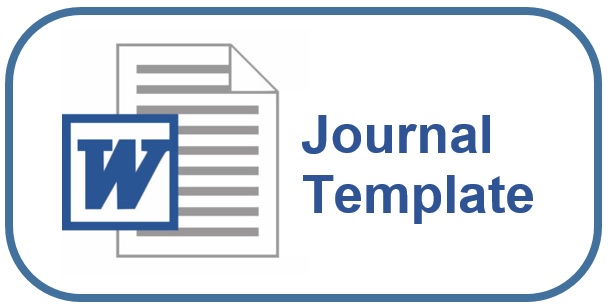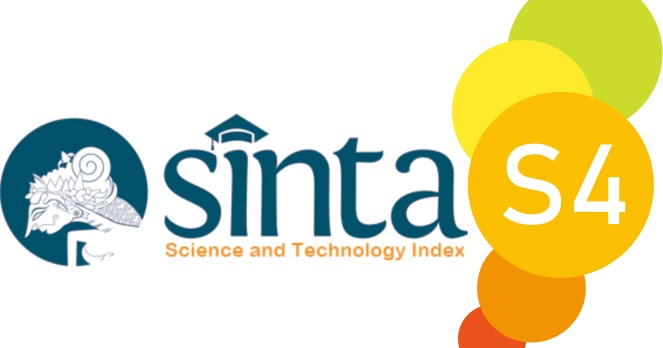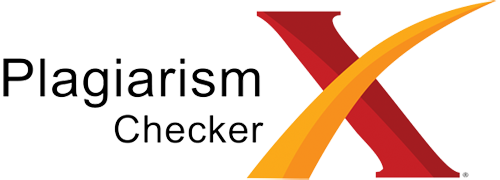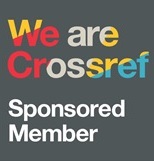Implementasi Aplikasi Toy App dan Modul Ajar Berbasis Proyek di SD Negeri 1 Padenganploso Kabupaten Lamongan
DOI:
https://doi.org/10.36277/abdimasuniversal.v5i2.300Keywords:
Toy App, a project-based teaching module, project-based teaching, 21st century skillsAbstract
Digital literacy is one of the most needed 21st century skills. The effectiveness of integrating the use of technology in project-based learning has proven to be effective in increasing digital literacy skills. Toy App is an Android-based application designed as a medium for learning basic literacy and numeracy. The purpose of this community service activity is to implement the Toy App application and project-based teaching modules to increase digital literacy in students. This activity was carried out for students at SD Negeri 1 Padenganploso, Pucuk District, Lamongan Regency. The results of this activity show that the implementation of the Toy App and project-based teaching modules has a positive impact on increasing digital literacy in students. In addition, the learning process is also more fun. Based on these results, the application of the Toy App application and project-based teaching modules can be used as an alternative in supporting digital literacy in elementary school students.
Downloads
References
Abdurrahman, M. (2018). Anak Berkesulitan Belajar. Jakarta: Rineka Cipta.
Afriana, J., Permanasari, A., & Fitriani, A. (2016). Penerapan project based learning terintegrasi STEM untuk meningkatkan literasi sains siswa ditinjau dari gender. Jurnal Inovasi Pendidikan IPA, 2(2), 202–212. https://doi.org/10.21831/jipi.v2i2.8561
Anazifa, R. D., & Djukri, D. (2017). Project- Based Learning and Problem-Based Learning: Are They Effective to Improve Student’s Thinking Skills? Jurnal Pendidikan IPA Indonesia, 6(2), 346–355. https://doi.org/10.15294/jpii.v6i2.11100.
Anggraena, Y., Ginanto, D., Felicia, N., Andiarti, A., Herutami, I., & Alhapip, L. (2022). Panduan Pembelajaran dan Asesmen Pendidikan Anak Usia Dini, Pendidikan Dasar, dan Menengah. Jakarta: Badan Standar, Kurikulum, dan Asesmen Pendidikan Kementerian Pendidikan, Kebudayaan, Riset, dan Teknologi Republik Indonesia.
Arends. (2010). Learning to Teach, Belajar untuk Mengajar (Edisi Tujuh). Yogyakarta: Pustaka Pelajar.
Azmi, N., Arianto, F., & Maureen, I. Y. (2022). Efektivitas Project Based Learning Terhadap Digital Literacy Skill Mahasiswa Pascasarjana Teknologi Pendidikan Pada Mata Kuliah Analisis Jurnal Ilmiah Di Universitas Negeri Surabaya. Jurnal Ilmiah Mandala Education, 8(2), 1523–1528. https://doi.org/10.58258/jime.v8i2.3247.
Becerra-Posada, T., García-Montes, P., Sagre-Barbosa, A., Carcamo-Espitia, M. I., & Herazo-Rivera, J. D. (2022). Project-Based Learning: The Promotion of Communicative Competence and Self-Confidence at a State High School in Colombia. HOW, 29(2), 13–31.
Chase, Z., & Laufenberg, D. (2011). Embracing the Squishiness of Digital Literacy. Journal of Adolescent & Adult Literacy, 54(7), 535–537. https://doi.org/10.1598/JAAL.54.7.7.
Faridah, N. R., Afifah, E. N., & Lailiyah, S. (2022). Efektivitas Model Pembelajaran Project Based Learning Terhadap Kemampuan Literasi Numerasi dan Literasi Digital Peserta Didik Madrasah Ibtidaiyah. Jurnal Basicedu, 6(1), 709–716. https://doi.org/10.31004/basicedu.v6i1.2030.
Genc, M. (2015). The project-based learning approach in environmental education. International Research in Geographical and Environmental Education, 24(2), 105–117. https://doi.org/10.1080/10382046.2014.993169
Gupta, C. (2022). The Impact and Measurement of Today’s Learning Technologies in Teaching Software Engineering Course Using Design-Based Learning and Project-Based Learning. IEEE Transactions on Education, 65(4), 703–712. https://doi.org/10.1109/TE.2022.3169532.
Hague, C., & Payton, S. (2011). Digital literacy across the curriculum. Retrieved from http://www.curriculum.edu.au/leader/default.asp?id=33211&issueID=12380.
Hariyadi, A., & Yanti, D. R. (2019). The Importance of Needs Analysis in Materials Development. Jurnal Ilmiah Profesi Pendidikan, 4(2), 94–99. https://doi.org/10.29303/jipp.v4i2.88.
Inderawati, R., Petrus, I., Eryansyah, E., & Meilinda, M. (2021). Needs Analysis of Vocational High School Textbook to Local Culture Materials and the 21st Century Competencies. English Review: Journal of English Education, 9(2), 245–252. https://doi.org/10.25134/erjee.v9i2.4349.
Kartini, F. S., Widodo, A., Winarno, N., & Astuti, L. (2021). Promoting Student’s Problem-Solving Skills through STEM Project-Based Learning in Earth Layer and Disasters Topic. Journal of Science Learning, 4(3), 257–266.
Kokotsaki, D., Menzies, V., & Wiggins, A. (2016). Project-based learning: A review of the literature. Improving Schools, 19(3), 267–277. https://doi.org/10.1177/1365480216659733
Loizzo, J., Conner, N. W., & Cannon, K. J. (2018). Project-Based Learning for Developing Digital Literacy in Undergraduate Science Communication. NACTA Journal, 62(2), 142–150.
Manoban, A. (2021). Project-Based Learning and E-Portfolios for Preservice Teachers in Japanese Language Education. Journal of Education and Learning, 10(4), 40–50.
Montoya, S. (2018). Defining literacy. Hamburg, Germany.
Muzana, S. R., Jumadi, Wilujeng, I., Yanto, B. E., & Mustamin, A. A. (2021). E-STEM Project-Based Learning in Teaching Science to Increase ICT Literacy and Problem Solving. International Journal of Evaluation and Research in Education, 10(4), 1386–1394.
Nanni, A. (2020). Leveraging Students’ Digital Literacy Through Project-Based Learning. The Asian EFL Journal, 24(1), 141–164.
Petrucco, C. (2013). Fostering Digital Literacy between Schools and the Local Community: Using Service Learning and Project-Based Learning as a Conceptual Framework. International Journal of Digital Literacy and Digital Competence (IJDLDC), 4(3), 10–18. https://doi.org/10.4018/ijdldc.2013070102.
Rohm, A. J., Stefl, M., & Ward, N. (2021). Future Proof and Real-World Ready: The Role of Live Project-Based Learning in Students’ Skill Development. Journal of Marketing Education, 43(2), 204–215. https://doi.org/10.1177/02734753211001409.
Sharma, A., Dutt, H., Venkat Sai, Ch. N., & Naik, S. M. (2020). Impact of Project Based Learning Methodology in Engineering. Procedia Computer Science, 172, 922–926. https://doi.org/10.1016/j.procs.2020.05.133.
Sinaga, S., Najamuddin, Anggreani, D., Widodo, U., William, K., Siahaan, K., … Mobo, F. (2023). Implementation of PBL Model on Strengthening Students’ Numerical Literacy and Digital Literacy Skills. Jurnal Obsesi : Jurnal Pendidikan Anak Usia Dini, 7(1), 575–586. https://doi.org/10.31004/obsesi.v7i1.3123.
Sumarno, W. K. (2019). Effects of Edmodo-Assisted Process Writing with the Problematized Scaffolding on the Quality of Students’ Writing. Lingua Cultura, 13(1), 31–37. https://doi.org/10.21512/lc.v13i1.5028.
Sumarno, W. K., Furqon, H., Shodikin, A., Solikha, N. I., Pratama, N. K., & Adha, D. R. (2023). Strengthening Teachers’ Digital Literacy through Interactive Video Making Training using the Kinemaster Application. Nusantara Science and Technology Proceedings, 170–176. https://doi.org/10.11594/nstp.2023.3328.
Sumarno, W. K., & Shodikin, A. (2018). Students’ Engagement, Writing Performance and Perception towards the Utilization of Edmodo in a Writing Course. Tenth International Conference on Applied Linguistics and First International Conference on Language, Literature and Culture, 1, 381–386. Bandung: Scitepress. https://www.doi.org/10.5220/0007167703810386.
Sumarno, W. K., Shodikin, A., Solikha, N. I., Pratama, N. K., & Valensiana, B. F. (2022). Integrative Teaching Material with Project-based Learning Approach to Improve Elementary School Students’ Bilingual Literacy and Numeracy Skills. International Journal of Elementary Education, 6(4), 600–611. https://doi.org/10.23887/ijee.v6i4.52392.
Sumarno, W. K., Shodikin, A., Solikha, N. I., Pratama, N. K., & Valensiana, B. F. (2023). Literacy and Numeracy Application “TOY App”: Students’ Responses. Nusantara Science and Technology Proceedings, 187–191. https://doi.org/10.11594/nstp.2023.3330.
Sumarno, W. K., & Tatik, M. (2019). Using Edmodo-Supported E-Portfolio as Authentic Assessment in EFL Writing Course. UNNES International Conference on English Language Teaching, Literature, and Translation (ELTLT 2018), 102–105. Atlantis Press. https://doi.org/10.2991/eltlt-18.2019.21.
Sumarno, W. K., Tatik, T., & Shodikin, A. (2017). Developing Constructivist-Webquests Online Materials for TEFL Course. Metathesis: Journal of English Language, Literature, and Teaching, 1(2), 123–135.
Togou, M. A., Lorenzo, C., Cornetta, G., & Muntean, G.-M. (2020). Assessing the Effectiveness of Using Fab Lab-Based Learning in Schools on K–12 Students’ Attitude Toward STEAM. IEEE Transactions on Education, 63(1), 56–62. https://doi.org/10.1109/TE.2019.2957711.
Trinaldi, A., Bambang, S. E. M., Afriani, M., Rahma, F. A., & Rustam, R. (2022). Analisis Kebutuhan Penggunaan Bahan Ajar Berbasis Teknologi Infomasi. Jurnal Basicedu, 6(6), 9304–9314. https://doi.org/10.31004/basicedu.v6i6.4037.
Wurdinger, S., & Qureshi, M. (2015). Enhancing College Students’ Life Skills through Project Based Learning. Innovative Higher Education, 40(3), 279–286. https://doi.org/10.1007/s10755-014-9314-3.























